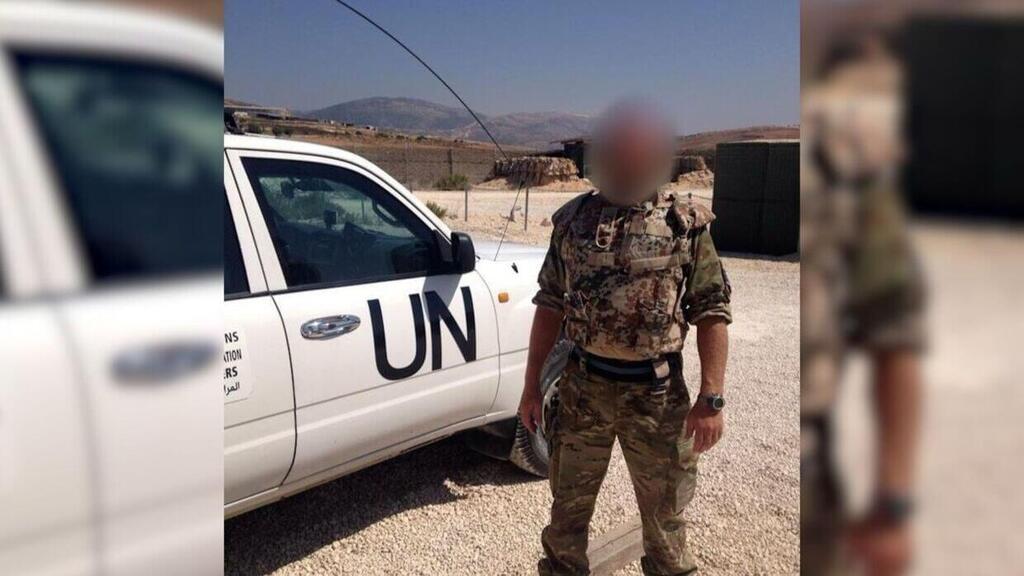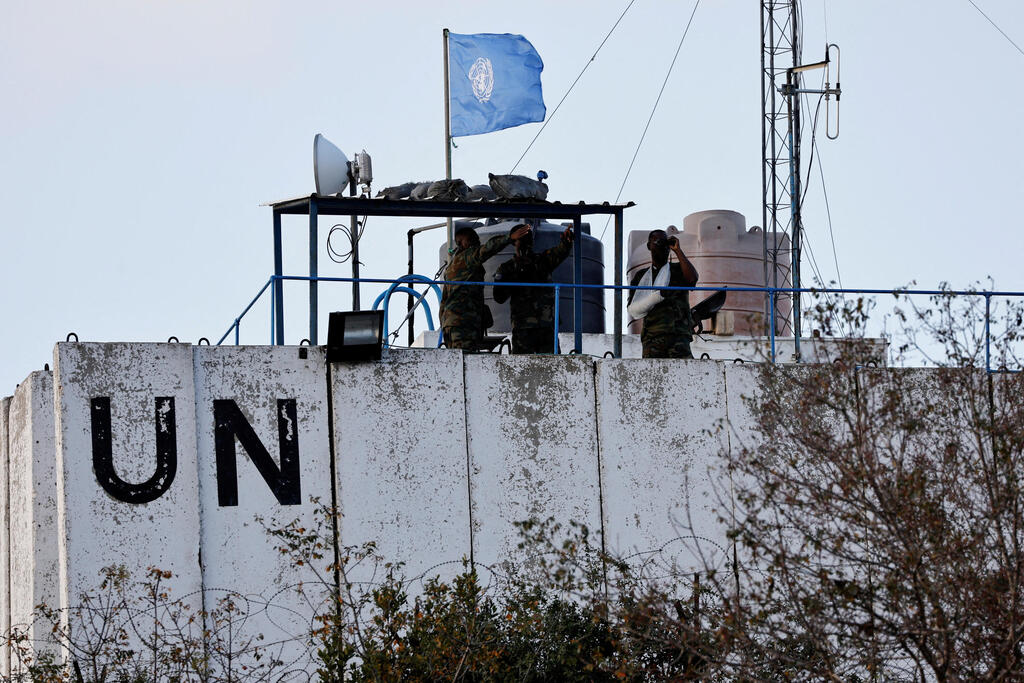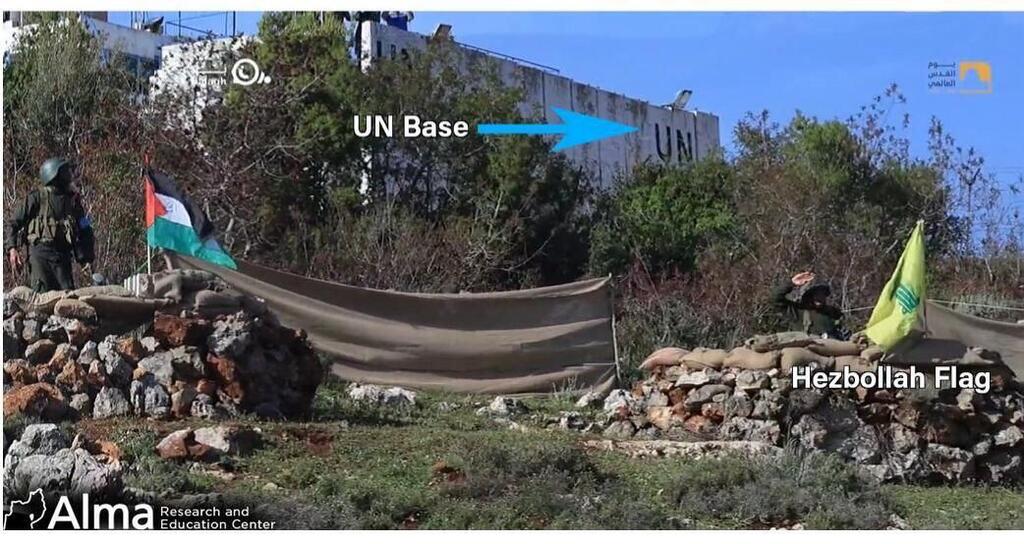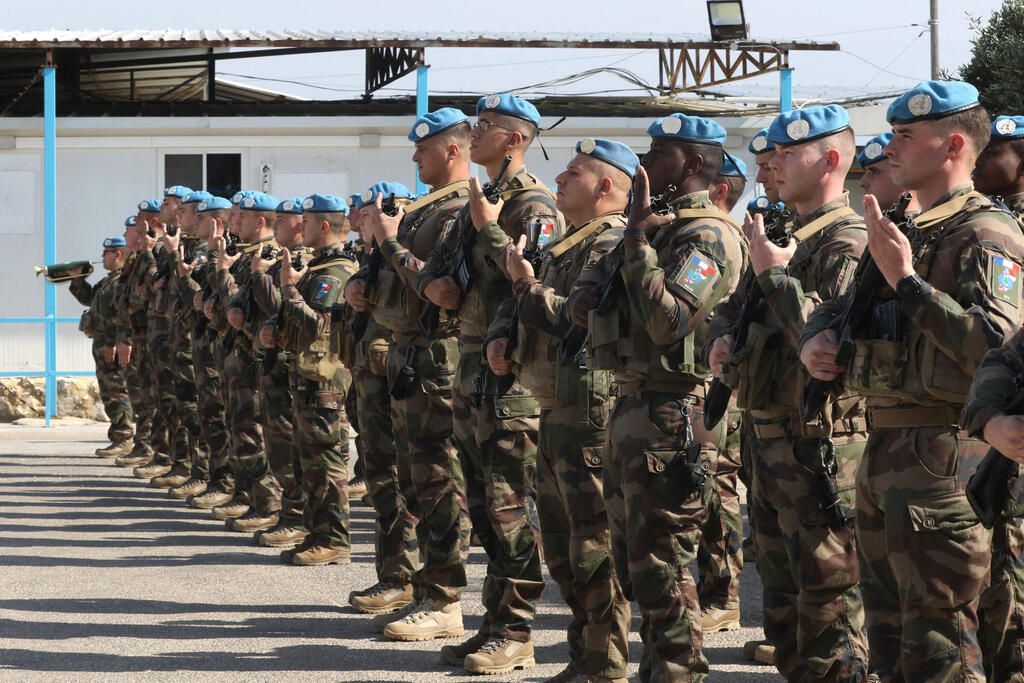Getting your Trinity Audio player ready...
A former Danish UN soldier revealed in an interview that Hezbollah maintained tight control over areas in southern Lebanon where UN personnel operated, further substantiating Israeli claims that the UN has failed to prevent Hezbollah's military buildup and enforce Resolution 1701, which ended the 2006 Lebanon War.
Michael, a retired Danish soldier who served with the UN in southern Lebanon, told the Danish newspaper BT that UN personnel were "completely dependent on Hezbollah" and had limited freedom of movement. "In some areas, we couldn’t even take photos," Michael said, referring to restrictions imposed by Hezbollah on UN forces.
Michael, who served with the UN Truce Supervision Organization (UNTSO) a decade ago, said Hezbollah's influence over UN activities was already pervasive at that time. He recounted that UN personnel were often blocked by Hezbollah operatives when they attempted to access suspected areas of terrorist activity. "They simply blocked the road. They weren’t openly armed, but it was clear they were Hezbollah fighters," he said.
He also noted that UN peacekeepers were prohibited from documenting what they observed. "It wasn’t allowed to take videos or pictures. If we did, locals could confiscate our cameras. This happened to some of my colleagues," Michael added.
When patrolling near the Israel-Lebanon border, Michael said UN forces were instructed to maintain a distance from Hezbollah operatives and avoid confrontation. "We often saw 'civilians' near Israeli military facilities taking pictures. When that happened, we pulled back and watched from a distance, as we were instructed to do," he explained.
'I once threw an interpreter out of my car for praising Nasrallah'
Michael told the Danish newspaper that fear of the terrorist group was widespread. "Civilians who didn’t support Hezbollah, especially Christians, were afraid to speak against it," he said.
He noted, however, that there was some cooperation between Shiite Muslims and UN personnel, with some interpreters affiliated with Hezbollah. "I once threw one out of my car for praising Hassan Nasrallah. I refused to listen to that," he said.
The ex-soldier described a "complete lack" of enforcement against repeated violations of UN Security Council Resolution 1701, which prohibits armed groups south of the Litani River except for the Lebanese army.
He expressed frustration over the lack of consequences for Hezbollah’s actions. "We reported daily violations of Resolution 1701, especially restrictions on our movement. We were instructed to report every violation, but nothing happened. We never heard back, and no action was taken. It was incredibly frustrating," Michael explained, adding that this confirmed his experiences in other UN deployments. "The UN is ineffective."
Despite this, Michael emphasized that he and his fellow UN personnel believed in their mission. "We had a reason to be there, even if some of us had to come to terms with the fact that we couldn’t do anything," he said. He also noted that some UN observers in southern Lebanon held strong anti-Israel views. "I remember one in particular, an Irishman," he added.
Michael expressed surprise at recent Israeli discoveries of Hezbollah tunnels and underground infrastructure, which are now being destroyed by the IDF near the border villages. According to the BT report, these tunnels are located near UNIFIL bases.
"We never saw or heard any digging while we were there—I would never have hidden that. But there were several civilian homes and even so-called 'chicken farms' near the Blue Line when I was there, and of course, we weren’t allowed to inspect them," he said, referring to a demarcation line dividing Lebanon from Israel.
Hezbollah's hostages
The former soldier revealed that during his service, Israeli forces had shown a precise understanding of Hezbollah's positions along the border. "We often visited the Israeli side of the border to get their perspective, and they could accurately pinpoint Hezbollah's locations on the other side," Michael said.
Michael's testimony comes amid growing tensions between Israel and UNIFIL. Israel has requested that UNIFIL withdraw its positions five kilometers (three miles) north of the border, citing ongoing clashes with Hezbollah.
Despite the escalating violence, UNIFIL has refused to relocate, a stance Israel argues puts the peacekeepers at risk and makes them "human shields" for Hezbollah, which operates near their bases.
The UN peacekeepers have been caught in the crossfire in recent weeks, leading to international condemnation and concern from Israel’s allies, including Italy. Israel is worried about the potential loss of international support for its military operations.
Foreign Minister Israel Katz clarified Israel's position last week, saying, "Israel places great importance on UNIFIL's mission and has no intention of harming the organization or its personnel. We view UNIFIL as crucial in the 'day after' scenario following the war with Hezbollah."
Katz accused Hezbollah of using UNIFIL as cover, saying, "The terrorist group deliberately fires at Israeli forces near UNIFIL positions to provoke conflict. We will continue to make every effort to avoid harming UNIFIL, in full coordination with its commanders and in accordance with international law."
Meanwhile, diplomatic efforts continue to reach a political solution to the northern front, as Hezbollah signals readiness for a cease-fire, separate from the ongoing war in Gaza.
U.S. envoy Amos Hochstein arrived in Beirut for talks, with Western diplomats urging Israel to seize the opportunity for a settlement, including a possible expansion of UNIFIL's mandate.
"We now understand that UNIFIL's mandate was flawed, and we need to explore either an expanded or a different mandate," a senior Western diplomat told Ynet.
Get the Ynetnews app on your smartphone:






